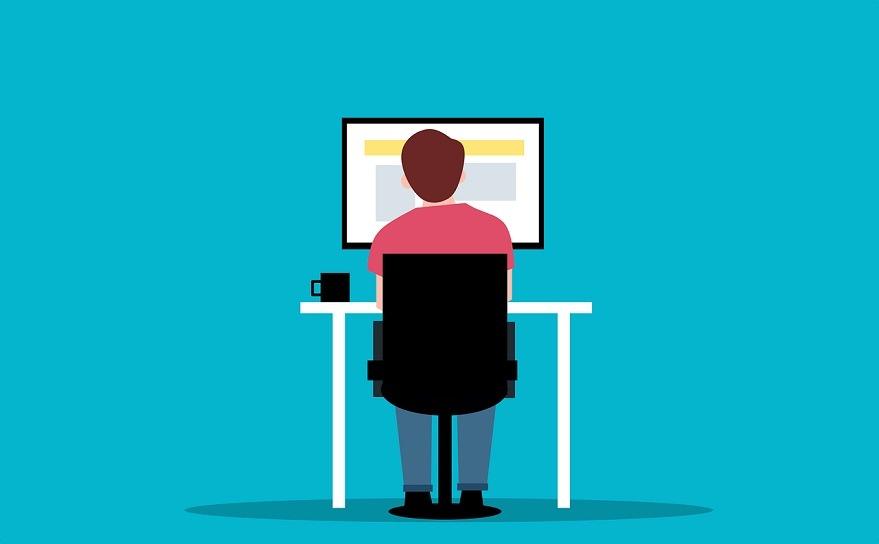Top 8 Risks of Freelancing to Consider Before Leaving Your Job

Discover these crucial risks of freelancing before quitting your job. Explore top 8 challenges in transitioning to full-time freelancing.
Freelancing has become quite popular in the modern world due to its flexibility and accessibility. Freelancers can work from anywhere, manage their schedules, and pursue diverse projects. This appeal has attracted professionals seeking freedom, varied opportunities, and a better work-life balance in today’s evolving job market.
There are many advantages of freelancing—autonomy, freedom, flexible working hours, better work-life balance, high hourly rates, and unlimited income potential. Working in pajamas from the comfort of one’s own home has prompted many people to quit their traditional jobs in pursuit of making money online.
Although freelancing may seem like an easy way to earn money online with flexible working hours, it can be quite the opposite at times. Alongside the advantages of flexible hours and improved work-life balance, such as the option to work from home, there are also several factors which may in turn make your life difficult.
No one can argue that achieving a better balance between work and life doesn’t have fantastic benefits. However, it’s essential to consider the potential drawbacks of freelancing. If you’re planning to start a freelance or virtual business, caution is advised. Being aware of the risks of freelancing is crucial, especially if you intend to pursue it full-time.
Before you make the switch, consider these 8 risks of freelancing you’ll have to bear if you choose to pursue it full-time.
Risks of Freelancing
- Unstable Income
- Unpredictable Workload
- Lack of Benefits
- Isolation and Loneliness
- Difficulty in Finding Clients
- Burnout
- Legal and Contractual Issues
- Procrastination and a Sedentary Lifestyle
Freelancing offers autonomy and flexibility, but it comes with inherent risks. Income instability, unpredictable workload, and lack of benefits are common challenges. Additionally, freelancers face isolation, client disputes, and the constant need for self-promotion. Understanding these risks is vital for navigating the freelancing landscape and achieving long-term success in this career path.
1. Unstable Income
The biggest difference between employment and freelancing is having an unstable income. This is one of the biggest challenges you’ll face as a freelancer. Freelancers always experience fluctuating income due to the irregular nature of projects and clients.
To overcome unstable income in freelancing, establish a financial buffer through savings, diversify income streams, and implement effective budgeting and cash flow management strategies. Set aside a portion of your income during prosperous periods to create a financial safety net for lean times.
2. Unpredictable Workload

Inconsistent workload in freelancing is a notable risk. Freelancers may face periods of overwhelming workloads followed by periods of little to no work. This unpredictability can strain finances and stress levels. Balancing multiple projects or managing downtime can be stressful and require careful planning.
To overcome workload fluctuations in freelancing, you need to prioritize time management, diversify your client base, and cultivate long-term relationships. Proactively seek new opportunities, improve your skills during downtime, and maintain a healthy work-life balance.
3. Lack of Benefits
Unlike traditional employment, freelancers typically do not receive benefits such as health insurance, retirement plans, paid time off, or sick leave. They are responsible for covering these expenses themselves, which can add financial strain.
To overcome the lack of benefits in freelancing, explore options for private health insurance, retirement savings plans, and paid time off. Consider joining professional associations offering group benefits and advocating for freelancer-friendly policies.
4. Isolation and Loneliness

Freelancing can be a solitary profession, with limited interaction with colleagues. This isolation can lead to feelings of loneliness and a lack of professional support or development opportunities.
To overcome isolation in freelancing, actively seek community through online forums, coworking spaces, or networking events. Schedule regular breaks, engage in hobbies, and maintain connections with friends and family to combat loneliness.
5. Difficulty in Finding Clients
Finding and retaining clients can be a significant challenge, especially for new freelancers. Building a solid client base requires time, effort, and often marketing skills. Freelancing platforms such as Upwork, Fiverr, and Freelancer have significantly simplified the process of connecting clients with freelancers, and do business together.
New freelancers often struggle to secure projects due to lack of experience or established reputation. Clients may prefer seasoned professionals for reliability, quality, and proven track records. It’s a big reason why new freelancers can’t find projects.
6. Burnout
Juggling multiple projects, managing finances, and dealing with the uncertainties of freelancing can lead to burnout. Without proper self-care and boundaries, freelancers may experience physical and mental exhaustion.
To overcome burnout in freelancing, prioritize self-care, set boundaries on work hours, and schedule regular breaks. Delegate tasks when possible, diversify projects to maintain interest, and seek social support.
7. Legal and contractual issues
Freelancers often work without the protection of a formal contract or legal framework, leaving them vulnerable to disputes over payment, intellectual property rights, and scope of work. Ensure clear and detailed contracts are in place for every project. Seek legal advice when needed, maintain professional communication, and promptly address any disputes that arise.
8. Procrastination and a Sedentary Lifestyle
As a freelancer, you don’t have to report to a manager. This is why freelancing often facilitates procrastination, making it tempting to postpone and evade completing your tasks on time. Also, since you don’t commute to work or get dressed, freelancing can lead you into a sedentary lifestyle, laziness and decreased physical activity. Establish clear goals, break tasks into smaller steps, set deadlines, prioritize movement breaks, and schedule regular exercise to promote physical and mental well-being.
Need Careful Planning
In conclusion, embarking on a freelancing journey offers immense opportunities but also carries significant risks. From income instability to client disputes and legal challenges, freelancers must navigate a complex landscape. However, with careful planning, proactive risk management, and a realistic understanding of the challenges ahead, freelancers can mitigate these risks of freelancing and build a successful and fulfilling career independently.






